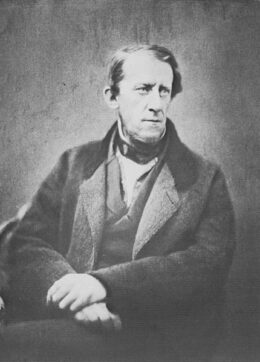
Printed
51 pages
Author(s)
Heinrich von Eichenfels
Pocci's play is an adaptation of the novel Wie Heinrich von Eichenfels zur Erkenntnis Gottes kam [How Heinrich von Eichenfels came to know God] (1817), by the Bavarian priest and author of numerous children's books Christoph von Schmid (1768-1856).This rewrite is one of Pocci's few attempts at the serious genre: it was because of the plot’s happy ending why it was published as a comedy in the first collection of Komödienbüchlein. The play reinvents medieval imagery in the Romantic taste, which Pocci had used extensively as an illustrator and children's author. The representation of Gypsies reflects a certain racism against travellers, but also the misery of their condition.
An abducted child reunited with his parents
While the Countess von Eichenfels is running to the aid of her husband, who is seriously wounded at the end of a victorious campaign, their only child Heinrich is taken from his cradle by a Gypsy woman, old Juta. Eight years later, Heinrich escapes from the cave where he was held captive by the gypsy band, while the Gypsies are out robbing on the highways. He finds refuge with Menrad, a hermit and a former comrade-in-arms of the Count's squire, Hannes. In pursuit of the robbers, he stops at the hermitage and, with Menrad's help, surprises the two Gypsies who were looking for Heinrich. In the meantime, Juta has been arrested and has confessed everything to the Count. Hannes and Menrad bring Heinrich back to his parents after eight years in captivity.
First performance
Publications and translations
Franz Pocci: Lustiges Komödienbüchlein, München, J.J. Lentner, 1859, 67-118
Franz von Pocci: Lustiges Komödienbüchlein 1, "Editio Monacensia", hrsg. von Ulrich Dittman und Manfred Nöbel, München, Allitera Verlag, 2007
